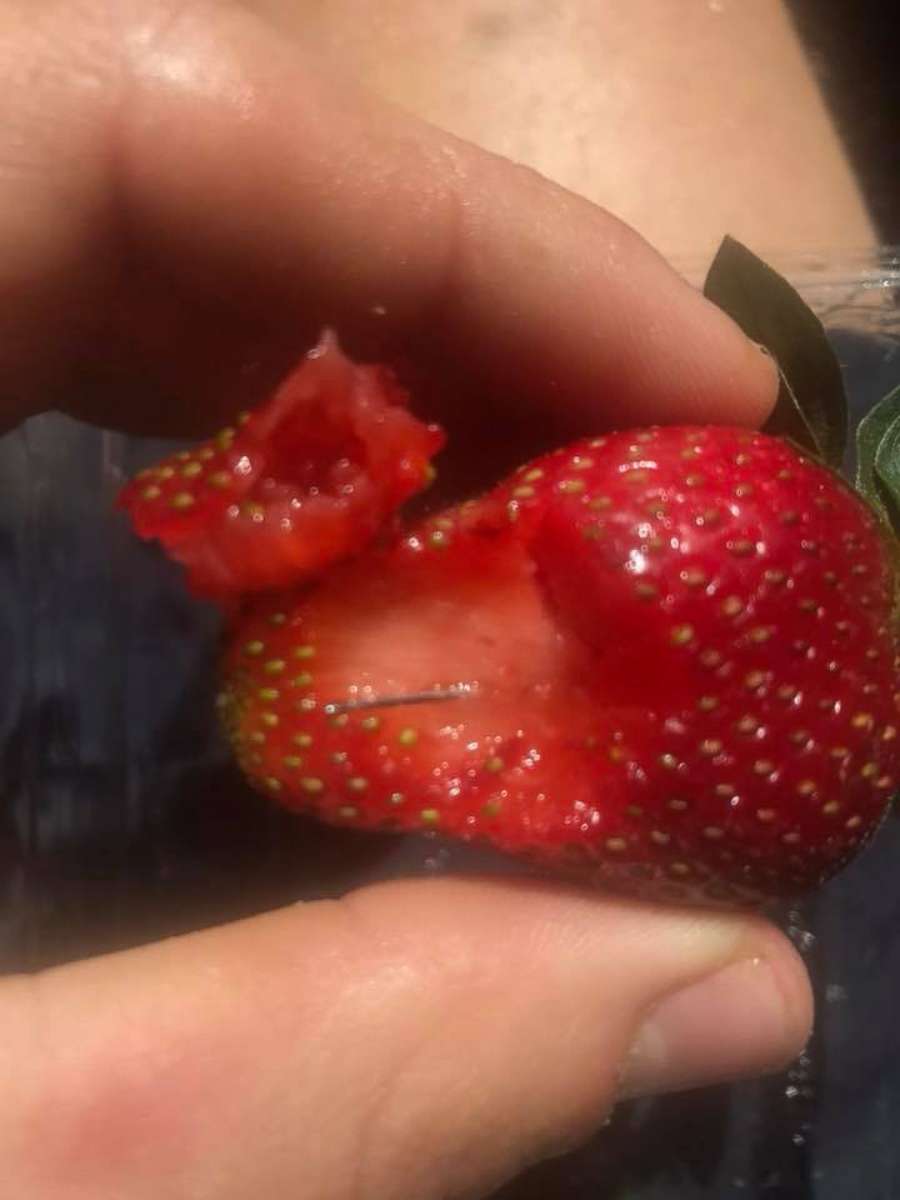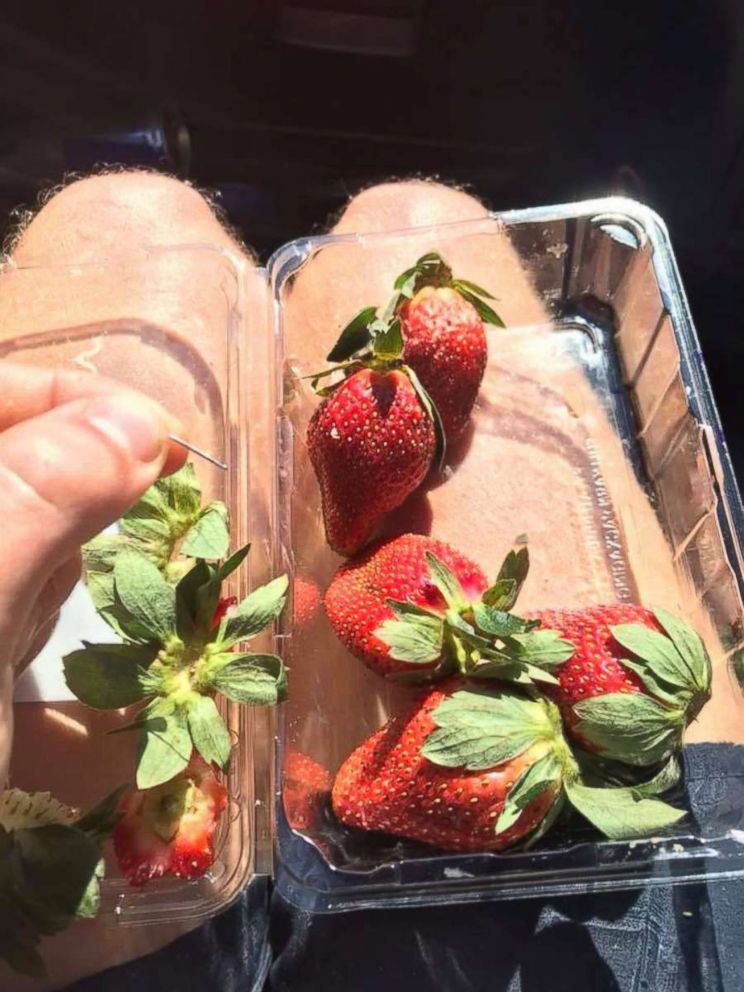Australia investigates sewing needles in strawberries as consumers advised to cut fruit before eating
Growers were reportedly using metal detectors to scan their fruit.
LONDON -- Australian authorities have ordered a review into the handling of strawberries after they say fruit containing sewing needles turned up in supermarkets across the country.
Annastacia Palaszczuk, premier of Queensland state, also offered a reward of roughly $72,000 for information leading to the arrest of anyone responsible.
“Whoever is behind this is not just putting families at risk across Queensland and the rest of Australia – they are putting an entire industry at risk,” she said in a statement.
No suspects have been identified.
The first reported case of strawberry contamination sparked national fears last week. Hoani van Dorp went to the hospital with "severe abdominal pain" after swallowing half a sewing needle lodged in a strawberry, according to friend Joshua Gane.
Gane made the allegation in a Facebook post that has been shared thousands of times.

Authorities have not confirmed any injuries or the number of strawberries that have been affected.
The Queensland Strawberry Growers Association described the incident as “extremely disheartening and troubling.”
“Strawberries were interfered with between the time they were packed and the time they were purchased,” it said, also advising purchasers to cut their fruit in half before eating for “peace of mind."
Contaminated strawberries have now been found in supermarkets Queensland, New South Wales, Tasmania and South Australia, according to the Australian Broadcasting Corp., which reported that strawberry growers are using metal detectors to scan their fruit.
Coles and Aldi supermarkets have reportedly pulled all strawberries from their shelves while two of New Zealand’s biggest food companies -- Countdown and Foodstuffs -- have reportedly stopped importing Australian strawberries.

The Queensland Health Department has advised anyone who has bought Berry Obsession and Berry Licious strawberries to destroy or return them after they were pulled from shelves. At least six major brands have been affected, according to the Guardian newspaper.
Minister for Health Greg Hunt announced on Twitter that regulatory body Food Standards Australia New Zealand will investigate.
He tweeted, “I urge all Australians be vigilant for potential contaminants.”




